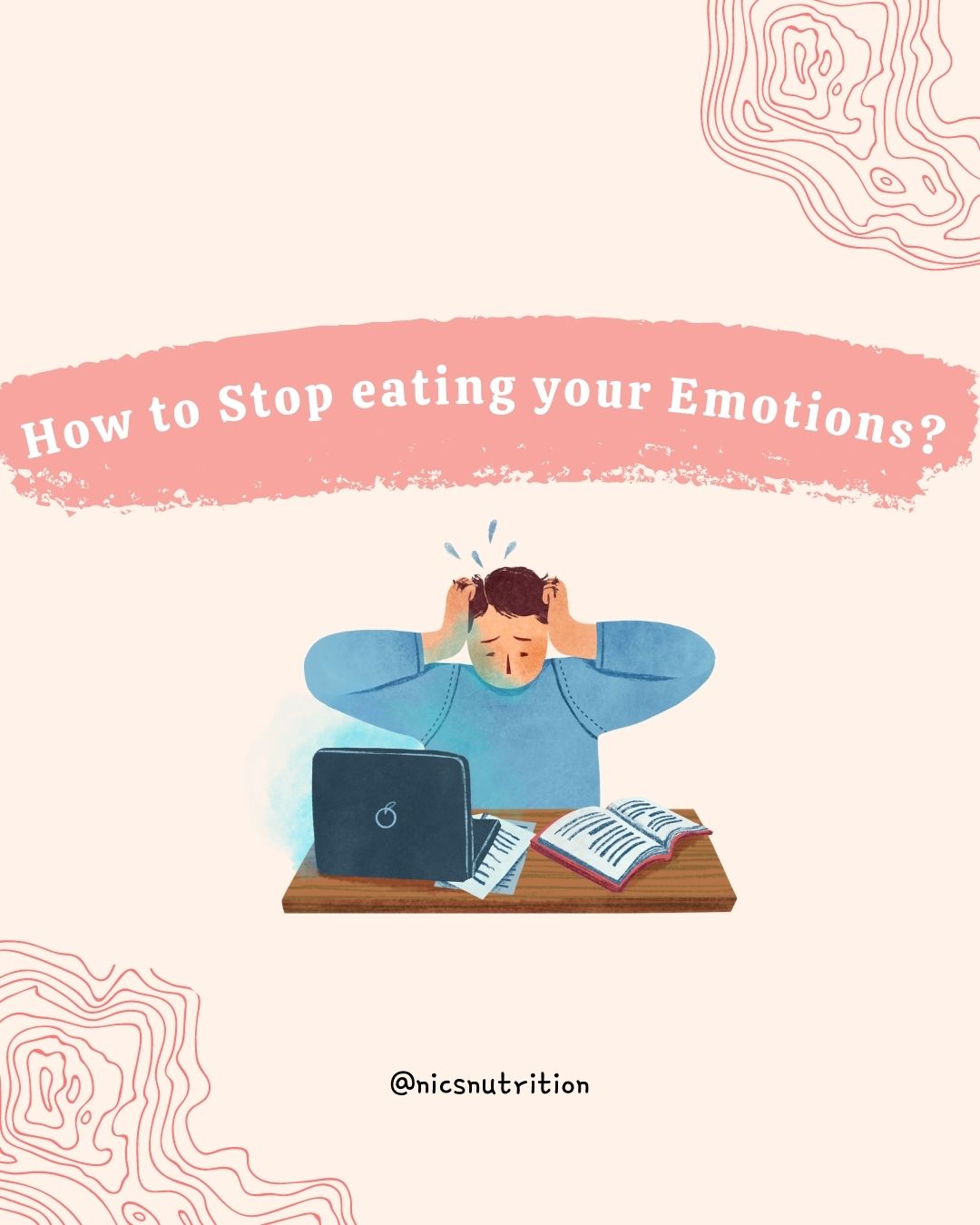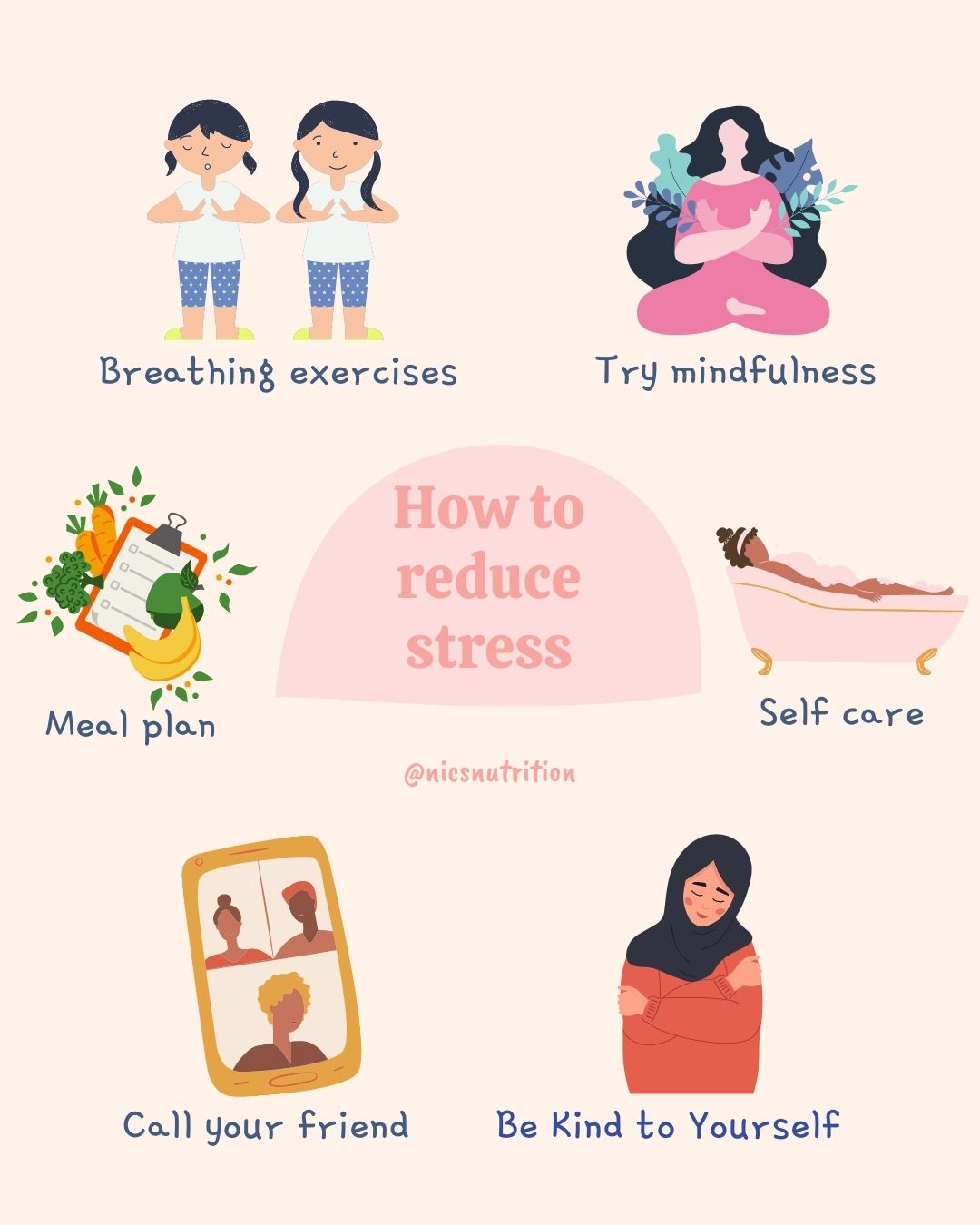
Have you ever been worried about the prospect of deciding what to eat? Anxious and eaten more/less than usual? Or have you ever been nervous and choose foods that you know will make you feel better?
You aren’t alone if you answered yes to any of these questions. Food can be a coping strategy for many of us (and this isn’t necessarily a bad thing!).
Stress is an unavoidable aspect of our lives. When we’re stressed, our bodies produce cortisol, which is an important hormone for our ‘fight or flight’ reaction. In the short-term, stress can also help to focus our memory, however, it’s chronic stress that can negatively impact our lives.
Chronic stress can have a detrimental impact on our mental health and increase the risk of gastrointestinal (gut) disorders, cardiovascular disease and type 2 diabetes, and also suppress our immune function. Stress can also disturb your sleep, which can lead to an increase in your appetite.
𝗪𝐇𝐀𝐓 𝐂𝐀𝐍 𝐇𝐄𝐋𝐏 𝐓𝐎 𝐑𝐄𝐃𝐔𝐂𝐄 𝐒𝐓𝐑𝐄𝐒𝐒?
Take a deep breath – Shorter inhales and longer exhales can help to stimulate the parasympathetic nervous system, which can help us feel more relaxed. Breathing exercises can be found on YouTube and apps such as Headspace/Calm.
Try mindfulness – Or some yoga into your daily/weekly routine. If you’re used to more high-intensity workouts, this may be beneficial for you!
Take a break – Go for a brisk walk during your lunch break, read a chapter of a book, take a bubble bath, or do something else that helps you relax. It’s important for our mental health to take breaks from the daily stress.
If you’re too stressed to eat – consider planning meals/snacks for the coming week to make the decision easier. Even a simple smoothie with fruit, oats, milk/yoghurt, nut butter and a handful of spinach is better than nothing!
Call your friend – Locking up your emotions isn’t helpful for your stress levels; after all, a problem shared is a problem halved! Distracting yourself by talking about your feelings will help you relieve any built-up stress and give you time to think about what’s going on.
Be kind to yourself – Try to practice talking to yourself as if you were talking to a friend. Recognise that you are not superhuman, and try to be realistic about what you can do in a day. Add a ‘time frame’ for your appointments/daily tasks; include a period when you allow yourself to procrastinate/have a quick stroll on Instagram from time to time!

🤔 What are your coping strategies?